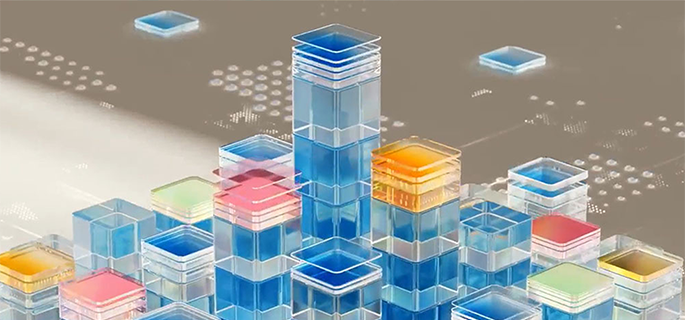Delivering on the promise of AI: Microsoft and NVIDIA Sponsored Content by Microsoft and NVIDIA
 Microsoft and NVIDIA’s long-standing collaboration has paved the way for revolutionary AI innovations. At the NVIDIA GTC AI Conference, Microsoft and NVIDIA announced the following new offerings, from leading AI infrastructure to new platform integrations, and industry breakthroughs. Watch Microsoft sessions and the keynote from NVIDIA GTC on demand.
Microsoft and NVIDIA’s long-standing collaboration has paved the way for revolutionary AI innovations. At the NVIDIA GTC AI Conference, Microsoft and NVIDIA announced the following new offerings, from leading AI infrastructure to new platform integrations, and industry breakthroughs. Watch Microsoft sessions and the keynote from NVIDIA GTC on demand.
Microsoft and NVIDIA collaborate on Grace Blackwell 200 Superchip for next-generation AI models
Microsoft and NVIDIA are bringing the power of the NVIDIA GB200 Grace Blackwell Superchip to Microsoft Azure. The GB200 is a new processor designed specifically for large-scale generative AI workloads, data processing, and high-performance workloads, featuring up to a massive 16 TB/s of memory bandwidth and up to an estimated 45 times the inference on trillion parameter models relative to the previous Hopper generation of servers.
Azure will be one of the first cloud platforms to deliver on GB200-based instances. Microsoft has worked closely with NVIDIA to ensure their GPUs, including the GB200, can handle the latest large language models (LLMs) trained on Azure AI infrastructure. These models require enormous amounts of data and compute to train and run, and the GB200 will enable Microsoft to help customers scale these resources to new levels of performance and accuracy. The new Azure instances-based on the latest GB200 and NVIDIA Quantum-X800 InfiniBand networking will help accelerate the generation of frontier and foundational models for natural language processing, computer vision, speech recognition, and more.
General availability of Azure NC H100 v5 VM series, optimized for generative inferencing and high-performance computing
As generative AI applications expand at incredible speed, the fundamental language models that empower them will expand also to include both SLMs and LLMs. To meet the ever-growing needs of AI, Microsoft announced the general availability of Azure NC H100 v5-series virtual machines (VM), designed for mid-range training, inferencing, and high-performance compute (HPC) simulations; it offers high performance and efficiency. These VMs are ideal for training models, running inferencing tasks, and developing cutting-edge applications.
The Azure NC H100 v5-series is based on the NVIDIA H100 NVL platform, which offers two classes of VMs, ranging from one to two NVIDIA H100 94GB PCIe Tensor Core GPUs connected by NVLink with 600 GB/s of bandwidth. This VM series supports PCIe Gen5, which provides the highest communication speeds (128GB/s bi-directional) between the host processor and the GPU. This reduces the latency and overhead of data transfer and enables faster and more scalable AI and HPC applications. Learn more about the Azure NC H100 v5-series.
Microsoft and NVIDIA deliver breakthroughs for healthcare and life sciences
Microsoft is expanding its collaboration with NVIDIA to help transform the healthcare and life sciences industry through the integration of cloud, AI, and supercomputing. By using the global scale, security, and advanced computing capabilities of Azure and Azure AI, along with NVIDIA’S DGX Cloud and NVIDIA Clara suite, healthcare providers, pharmaceutical and biotechnology companies, and medical device developers can now rapidly accelerate innovation across the entire clinical research to care delivery value chain for the benefit of patients worldwide. Learn more.
New Omniverse APIs enable customers across industries to embed massive graphics and visualization capabilities
Today, NVIDIA’s Omniverse platform for developing 3D applications will now be available as a set of APIs running on Microsoft Azure, enabling customers to embed advanced graphics and visualization capabilities into existing software applications from Microsoft and partner ISVs.
Built on OpenUSD, a universal data interchange, NVIDIA Omniverse Cloud APIs on Azure do the integration work for customers, giving them seamless physically based rendering capabilities on the front end. Demonstrating the value of these APIs, Microsoft and NVIDIA have been working with Rockwell Automation and Hexagon to show how the physical and digital worlds can be combined for increased productivity and efficiency.
Microsoft and NVIDIA envision deeper integration of NVIDIA DGX Cloud with Microsoft Fabric
The two companies are also collaborating to bring NVIDIA DGX Cloud compute and Microsoft Fabric together to power customers’ most demanding data workloads. This means that NVIDIA’s workload-specific optimized runtimes, LLMs, and machine learning will work seamlessly with Fabric. NVIDIA DGX Cloud and Fabric integration include extending the capabilities of Fabric by bringing in NVIDIA DGX Cloud’s large language model customization to address data-intensive use cases like digital twins and weather forecasting with Fabric OneLake as the underlying data storage. The integration will also provide DGX Cloud as an option for customers to accelerate their Fabric data science and data engineering workloads.
Delivering on the promise of AI to customers worldwide
With a powerful foundation of Azure AI infrastructure that uses the latest NVIDIA GPUs, Microsoft is infusing AI across every layer of the technology stack, helping customers drive new benefits and productivity gains. Now, with more than 53,000 Azure AI customers, Microsoft provides access to the best selection of foundation and open-source models, including both LLMs and small language models (SLMs), all integrated deeply with infrastructure data and tools on Azure.
The recently announced partnership with Mistral AI is also a great example of how Microsoft is enabling leading AI innovators with access to Azure’s cutting-edge AI infrastructure, to accelerate the development and deployment of next-generation LLMs. Azure’s growing AI model catalogue offers, more than 1,600 models, letting customers choose from the latest LLMs and SLMs, including OpenAI, Mistral AI, Meta, Hugging Face, Deci AI, NVIDIA, and Microsoft Research. Azure customers can choose the best model for their use case.
Learn more about Microsoft and NVIDIA AI solutions










